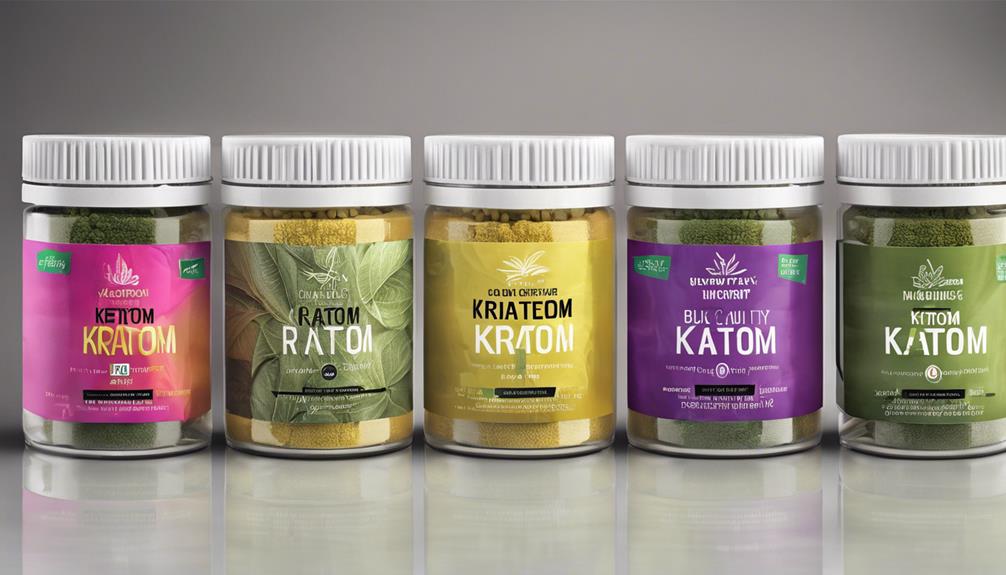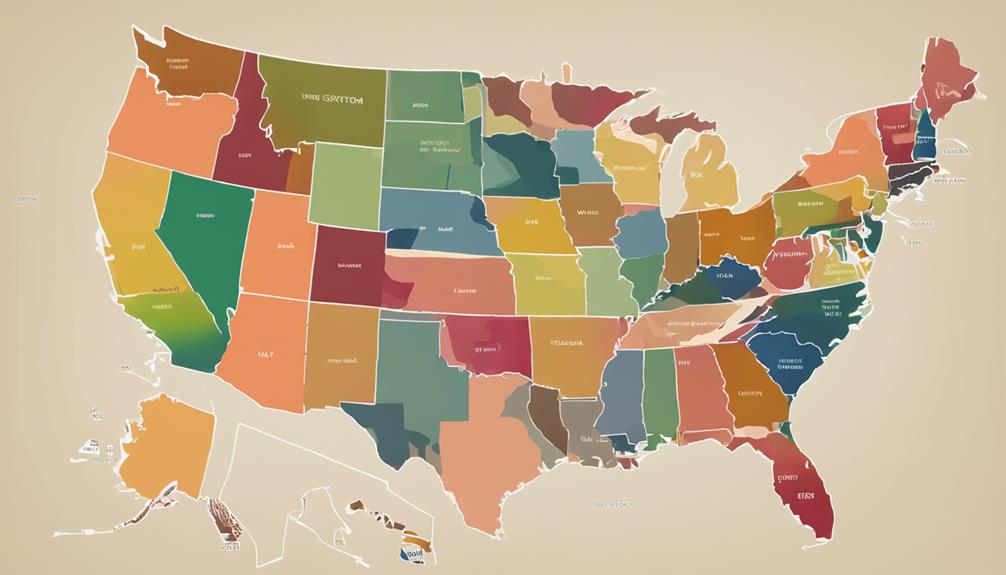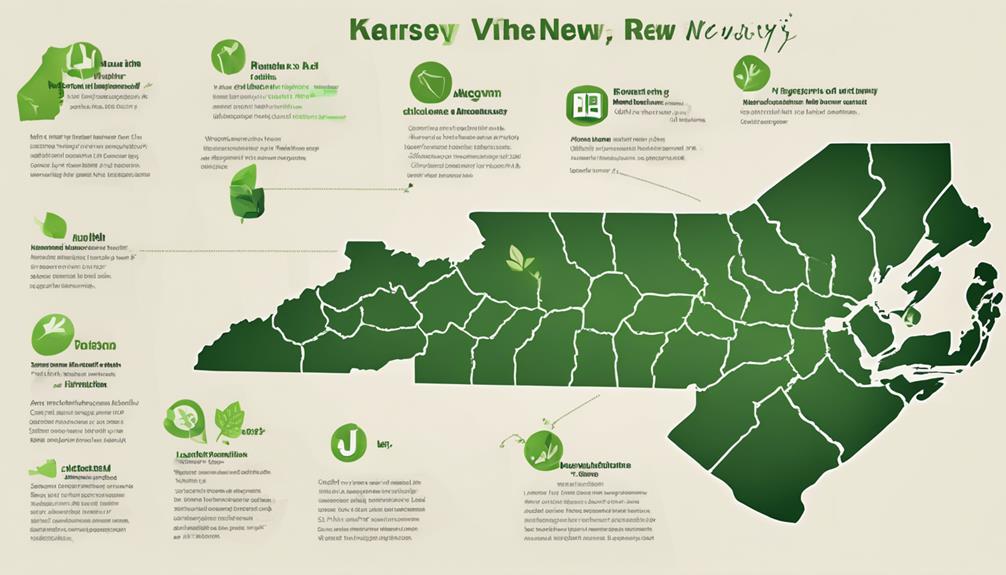Deprecated: mb_convert_encoding(): Handling HTML entities via mbstring is deprecated; use htmlspecialchars, htmlentities, or mb_encode_numericentity/mb_decode_numericentity instead in /home/users/kratomfiles/www/kratomfiles.com/wp-content/plugins/quick-adsense-reloaded/includes/template-functions.php on line 3552
Did you know that Arizona has taken a unique approach to kratom regulation through the implementation of the Kratom Consumer Protection Act? As you explore the intricacies of kratom legality in Arizona, you will uncover essential details about the Act, selling restrictions, labeling requirements, and the state's stance on potential bans. Understanding the detailed framework surrounding kratom in Arizona is important for maneuvering the landscape of this increasingly popular botanical substance.
Key Takeaways
- Kratom legal in Arizona with no statewide bans.
- The Kratom Consumer Protection Act regulates sales.
- Arizona sets age restrictions, labeling, and safety standards.
- Maximum 7-hydroxymitragynine concentration limit of 2%.
- Advocacy efforts support consumer safety and product quality.
Kratom Legality Overview in Arizona
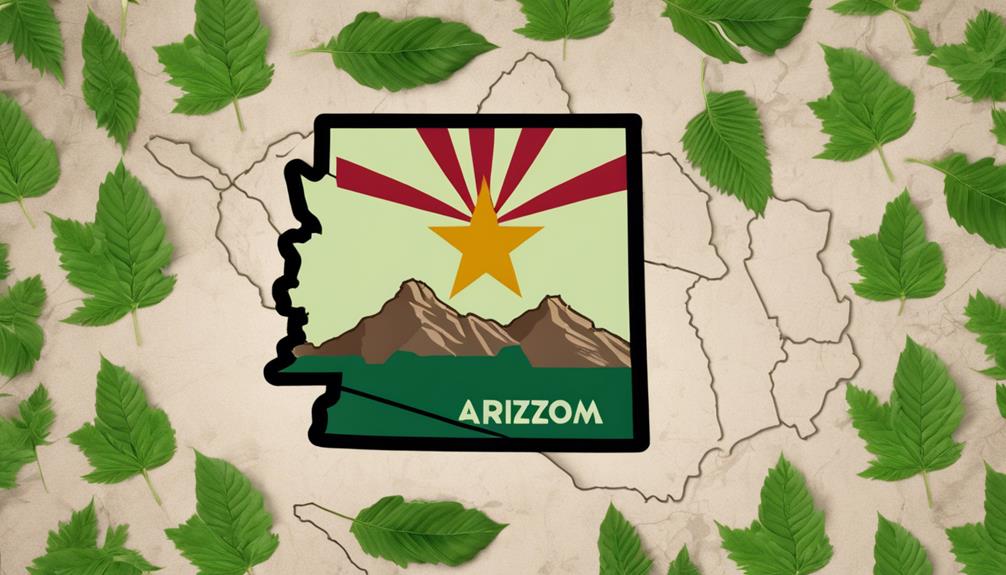
In Arizona, kratom remains legal, with no statewide bans currently in effect. The Arizona Kratom Consumer Protection Act plays a significant role in regulating the sale of kratom within the state. This act sets strict labeling requirements for kratom products, ensuring that consumers are well-informed about what they are purchasing. Additionally, the act prohibits the sale of kratom to individuals under 18 years old, emphasizing the state's commitment to responsible consumption. Arizona's attempt to ban kratom in 2014 was unsuccessful, highlighting the current acceptance and legality of this botanical substance. By implementing the Kratom Consumer Protection Act, Arizona aims to safeguard consumers from potentially harmful products while allowing access to kratom for those who use it responsibly. This proactive approach distinguishes Arizona as a state that values consumer safety and well-being in the domain of kratom legality.
Arizona Kratom Laws Explained
When it comes to Arizona kratom laws, understanding the regulations, legal age requirements, and guidelines for selling and purchasing kratom products is essential. Arizona has implemented the Kratom Consumer Protection Act, which sets forth safety measures such as age restrictions and labeling requirements to guarantee consumer well-being. Familiarizing yourself with these laws will help you navigate the legal landscape surrounding kratom in Arizona.
Arizona Kratom Regulations
Implementing the Kratom Consumer Protection Act (KCPA) in Arizona has established thorough regulations governing the sale and distribution of kratom products in the state. Under the KCPA, strict labeling requirements are mandated, guaranteeing that ingredients and alkaloid concentrations are clearly disclosed to consumers. Synthetic alkaloids are banned in Arizona kratom products to uphold safety standards and product purity. The state also enforces regulations on alkaloid concentrations, setting a limit of 2% for 7-hydroxymitragynine to maintain the quality of kratom products available for purchase. By adhering to these regulations, Arizona aims to safeguard consumers, particularly minors, from potential harm and ensure the responsible sale of kratom within the state.
Legal Age Requirement
Continuing the focus on Arizona's regulations, let's now explore the legal age requirement concerning the purchase of kratom in the state. In Arizona, individuals must be at least 18 years old to buy kratom, as mandated by the Kratom Consumer Protection Act. This act strictly prohibits the sale of kratom to minors to safeguard them from potential risks. Vendors in Arizona are obligated to confirm the age of customers before selling kratom to ensure compliance with the law. Failure to adhere to the age restriction for selling kratom can lead to penalties for vendors. By enforcing these regulations, Arizona aims to promote the responsible use of kratom and protect the well-being of its residents, especially minors.
Selling and Purchasing
To engage in the selling and purchasing of kratom in Arizona, it is important to understand the detailed regulations set forth by the state's Kratom Consumer Protection Act (KCPA). Under this act, selling kratom to individuals under 18 is prohibited. Manufacturers in Arizona must comply with strict labeling requirements, disclosing product contents and listing ingredients. Synthetic alkaloids are banned in kratom products due to safety concerns. Arizona guarantees high quality by prohibiting the sale of contaminated kratom products. Additionally, the state regulates alkaloid concentrations, with a maximum limit of 2% for 7-hydroxymitragynine to protect consumers. By adhering to these regulations, both sellers and buyers can be confident in the safety and quality of kratom products in Arizona.
Kratom Consumer Protection Act Details
The Kratom Consumer Protection Act in Arizona establishes stringent regulations to guarantee the safety and transparency of kratom products. Under this act, age restrictions are mandated for purchasing kratom to make certain responsible consumption. Manufacturers are required to comply with strict safety regulations outlined in Arizona's House Bill 2550, which includes disclosing ingredients and alkaloid concentrations on product labels. To maintain purity and safety, synthetic alkaloids are prohibited in kratom products within the state. Additionally, Arizona enforces a ban on the sale of contaminated kratom, such as products containing mold, bacteria, or synthetic components. These measures aim to safeguard consumers from potential harm and uphold the quality standards of kratom products available in the market. By adhering to these regulations, both manufacturers and consumers contribute to a safer and more transparent kratom industry in Arizona.
Selling Restrictions in Arizona
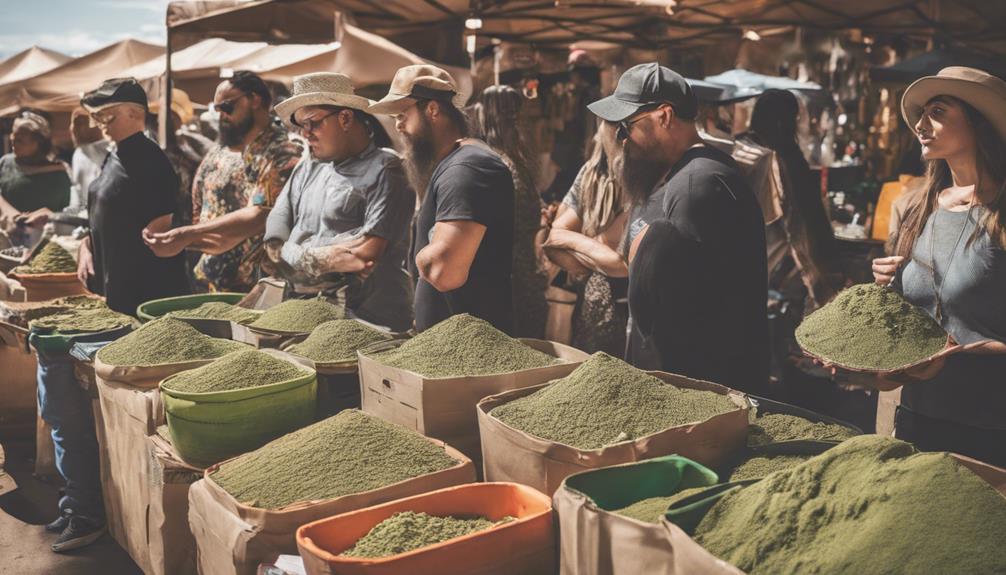
Guarantee compliance with Arizona law by refraining from selling kratom to individuals under the age of 18. The Arizona Kratom Consumer Protection Act (KCPA) enforces strict selling restrictions to protect consumers, especially minors. To verify you are meeting the selling restrictions in Arizona, consider the following:
- Under 18 Sales Prohibited: It is illegal to sell kratom to individuals under 18 years old.
- Compliance is Key: Vendors, manufacturers, and distributors must adhere to age restrictions.
- KCPA Regulations: The Kratom Consumer Protection Act outlines specific rules for selling kratom.
- Protecting Minors: Arizona's regulations aim to safeguard minors from accessing kratom products.
- Legal Obligations: It is essential for all businesses selling kratom in Arizona to understand and follow the state's selling restrictions diligently.
Labeling Requirements for Kratom Products
When purchasing kratom products in Arizona, it is important to pay attention to the labeling requirements set forth by the Kratom Consumer Protection Act. Manufacturers are mandated to provide vital information such as ingredients, proper dosage instructions, and safety warnings on product labels. Ensuring that these labeling requirements are met can help consumers make informed decisions and promote safe usage of kratom products.
Required Product Information
For those looking to purchase kratom products in Arizona, it is crucial to make sure that the labeling on the product provides detailed information about its ingredients and alkaloid concentrations. When examining kratom products, pay attention to the following key points:
- Disclosure of Ingredients: Make certain the product lists all ingredients used.
- Alkaloid Concentrations: Seek information on the levels of alkaloids present.
- Batch Testing: Confirm that batch testing has been conducted for quality assurance.
- Prohibition of Synthetic Alkaloids: Validate that synthetic alkaloids are not included.
- Regulated Alkaloid Limits: Be mindful of Arizona's regulations, including the 2% limit for 7-hydroxymitragynine.
Proper Dosage Instructions
In order to guarantee safe consumption and proper usage of kratom products in Arizona, it is crucial that detailed dosage instructions are prominently displayed on the product labels. The Arizona Kratom Consumer Protection Act mandates that labels include precise dosage instructions to assist consumers in using the product safely. By providing clear guidance on how much kratom to consume, individuals can avoid the risks of misuse or potential adverse effects. These dosage instructions should also cover information on alkaloid concentrations and the potential effects of the product. Following the labeling requirements set by the Act guarantees transparency and consumer safety, allowing users to make informed decisions when using kratom products.
Safety Warnings Displayed
To ensure consumer safety and regulatory compliance, all kratom products in Arizona must prominently display thorough safety warnings on their labels. These labeling requirements are essential for providing transparency and ensuring that consumers can make informed decisions about the products they purchase. Here are five key elements that must be included on kratom product labels in Arizona:
- Safety warnings for proper usage and potential risks.
- Listing of ingredients and alkaloid concentrations.
- Mandatory batch testing information for quality assurance.
- Promoting consumer awareness and informed choices.
- Ensuring compliance with regulations for transparency and accountability.
Prohibited Synthetic Alkaloids
With the prohibition of synthetic alkaloids in kratom products, Arizona enforces stringent measures to safeguard consumer well-being and product quality. Synthetic alkaloids are artificial compounds added to kratom that can pose serious health risks due to their unpredictable nature. By banning synthetic alkaloids, Arizona prioritizes the use of natural kratom products sourced from pure Mitragyna speciosa, ensuring a safer option for consumers. This legal restriction helps maintain the purity and integrity of kratom available in the state, promoting transparency and reliability within the market.
The regulation against synthetic alkaloids is vital in preventing potential adulteration of kratom products, which could compromise their quality and safety. Consumers in Arizona can trust that the kratom products they purchase are free from synthetic compounds, providing them with peace of mind and assurance when incorporating kratom into their wellness routines. By adhering to these guidelines, Arizona upholds a standard of excellence in the kratom industry, fostering a sense of security and trust among its consumers.
Banning Contaminated Products
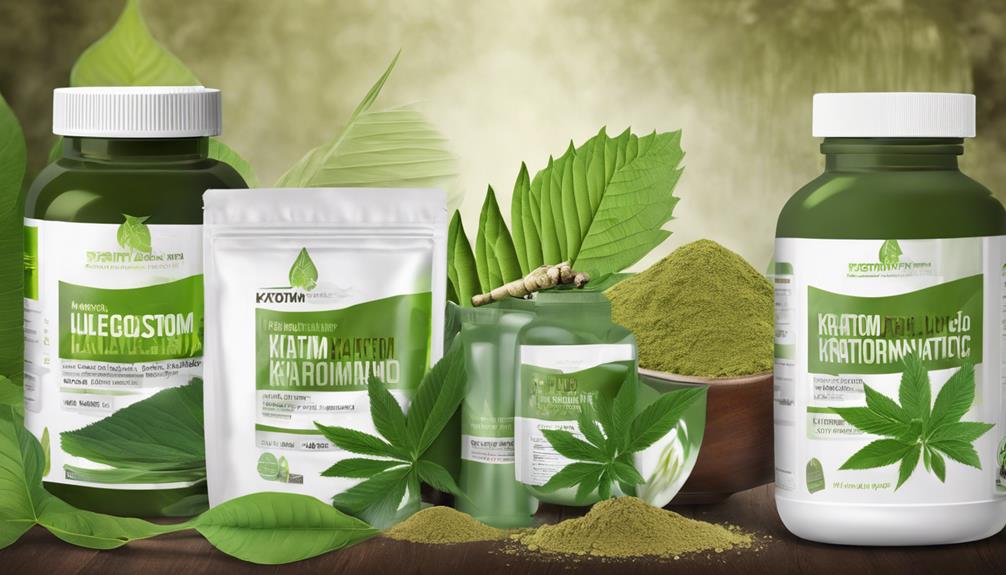
When it comes to kratom products, ensuring they are free from contaminants is paramount for your safety. Arizona has strict regulations in place to ban contaminated products that may contain harmful substances like synthetic ingredients or mold. These measures aim to protect consumers and uphold quality standards within the kratom industry.
Contaminated Product Risks
Contaminated kratom products present significant health risks due to the potential presence of synthetic ingredients, controlled substances, mold, and bacteria. To safeguard consumers, Arizona prohibits the sale of contaminated kratom. Here are essential points to keep in mind:
- Health Risks: Contaminated kratom can lead to adverse effects on your well-being.
- Synthetic Ingredients: Some products may contain artificial compounds harmful to your health.
- Controlled Substances: Contaminated kratom could include substances regulated by law.
- Mold and Bacteria: Presence of these contaminants can pose serious health threats.
- Quality Control Standards: Arizona ensures that kratom products meet safety standards for consumer protection.
Being aware of these risks highlights the importance of purchasing kratom from trusted sources adhering to quality regulations.
Regulatory Measures Taken
Implementing strict regulations, Arizona guarantees the prohibition of tainted kratom products to safeguard consumer safety. The state's focus on regulatory measures under the Kratom Consumer Protection Act ensures that contaminants such as synthetic ingredients, controlled substances, mold, and bacteria are kept out of the market. By upholding quality control standards and regulating alkaloid concentrations, Arizona aims to prevent the distribution of harmful kratom products. This commitment to consumer safety sets a high standard for the industry and gives consumers peace of mind when purchasing kratom products in Arizona. Check out the table below for a quick overview of the contaminants banned in kratom products in Arizona.
| Contaminants | Description | Impact on Consumers |
|---|---|---|
| Synthetic Ingredients | Human-made substances not naturally found in kratom | Adverse health effects |
| Controlled Substances | Illegal substances present in kratom products | Legal implications |
| Mold and Bacteria | Microorganisms that can cause infections | Health risks |
Regulation of Alkaloid Concentrations
Regulating alkaloid concentrations in kratom products is a critical aspect of ensuring consumer safety and product quality in Arizona. The state imposes a maximum 7-hydroxymitragynine concentration limit of 2% on kratom products, with most natural products containing alkaloid concentrations below 1%. Arizona follows the standards set by the Kratom Consumer Protection Act (KCPA), making the regulation of alkaloid concentrations a common practice to safeguard consumers. Concentrated kratom extracts frequently adhere to Arizona's alkaloid concentration regulations, ensuring that products meet safety and quality standards. By enforcing compliance with these concentration limits, Arizona guarantees the availability of safe and high-quality kratom products for consumers.
- Arizona sets a maximum 7-hydroxymitragynine concentration limit of 2% on kratom products.
- Most natural kratom products typically have alkaloid concentrations below 1%.
- Regulation of alkaloid concentrations is a standard practice in states following the Kratom Consumer Protection Act (KCPA).
- Concentrated kratom extracts often meet the alkaloid concentration standards set by Arizona regulations.
- Ensuring compliance with alkaloid concentration limits guarantees the safety and quality of kratom products available in Arizona.
Travel Tips for Kratom Users

When traveling with kratom, it is important to keep it in its original packaging to prevent any potential legal complications. Researching local laws at your destination is vital to make sure that kratom is legal there, avoiding any unforeseen legal issues. It is advisable to avoid carrying large quantities of kratom when traveling to prevent raising suspicion, especially in areas with strict regulations. Checking airline regulations on carrying kratom in both carry-on and checked luggage is recommended to comply with transportation guidelines.
In case you are questioned by authorities during travel, be prepared to explain what kratom is and its legality, emphasizing its legal status in Arizona and other relevant locations. By staying informed about travel tips, legal issues, local laws, and airline regulations regarding kratom, you can ensure a smooth and hassle-free travel experience with your kratom products.
Online Kratom Vendors in Arizona
When searching for kratom in Arizona, you can count on online vendors like Royal Kratom that offer a diverse range of lab-tested products. These vendors also provide the convenience of local pickup options for customers in Arizona. With free same-day shipping and a 30-day satisfaction guarantee, online vendors like Royal Kratom guarantee a seamless experience for purchasing quality kratom products in Arizona.
Reliable Online Vendors
Looking to purchase premium lab-tested kratom products in Arizona? When it comes to reliable online vendors, you can count on Royal Kratom for quality and convenience. Here are five reasons why Royal Kratom stands out:
- Royal Kratom offers high-quality lab-tested kratom products not commonly found elsewhere.
- They provide unique specialty kratom items to cater to your specific needs.
- Enjoy free same-day shipping on all orders for added convenience.
- Benefit from a 30-day satisfaction guarantee to safeguard your peace of mind.
- Online vendors like Royal Kratom provide a wider selection of excellent kratom products compared to local stores.
Choose Royal Kratom for a seamless online shopping experience with excellent kratom products.
Local Pickup Options
For those seeking local pickup options for premium lab-tested kratom products in Arizona, several online vendors offer convenient solutions. Arizona Kratom in Tucson provides access to lab-tested strains through a 24-hour vending machine. Lacuna Kava Bar Sedona offers unique kava and kratom drinks with positive reviews on product quality. Its All Goodz in Phoenix stands out for its diverse range of high-quality kratom products and excellent customer service. Smoke N Thingz in Prescott Valley has a loyal customer base for their kratom offerings. Online vendors like Austin Organic Village and Kona Kratom also cater to Arizona residents with local pickup options for purity-guaranteed kratom products.
| Vendor | Location |
|---|---|
| Arizona Kratom | Tucson |
| Lacuna Kava Bar | Sedona |
| Its All Goodz | Phoenix |
| Smoke N Thingz | Prescott Valley |
Arizona Kratom Regulations Update
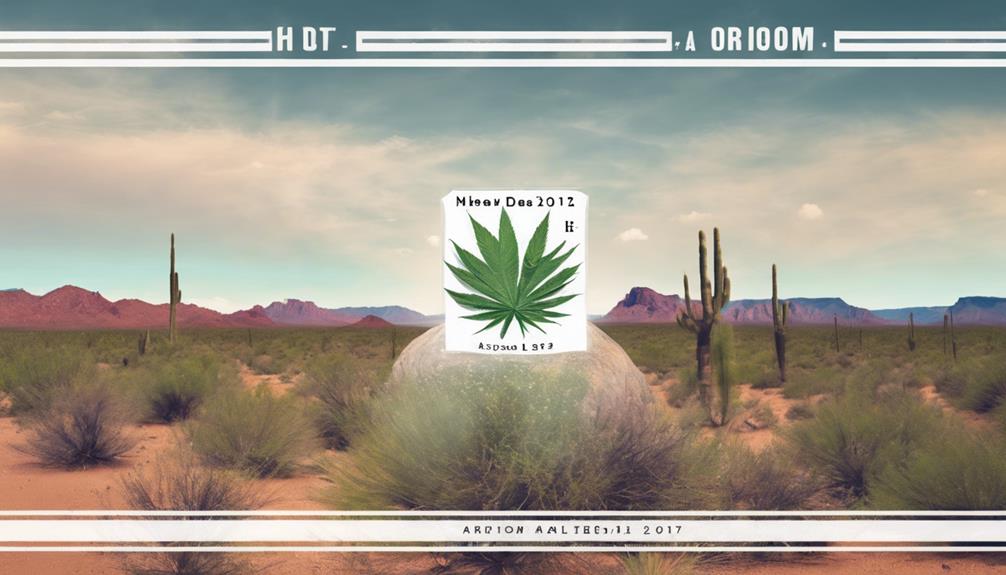
Regularly updated Arizona Kratom regulations guarantee the safety and quality of kratom products available in the state. The Kratom Consumer Protection Act in Arizona enforces strict safety regulations and quality standards to protect consumers. Here are some key points regarding the current kratom regulations in Arizona:
- The Kratom Consumer Protection Act mandates age restrictions and labeling requirements for kratom products.
- Manufacturers in Arizona are held to high standards of safety regulations under the Kratom Consumer Protection Act.
- Sale of kratom to individuals under 18 years old is prohibited in Arizona to safeguard minors.
- Mandatory lab testing and batch testing ensure the quality and safety of kratom products in Arizona.
- Synthetic alkaloids are banned in kratom products in Arizona to prevent the distribution of hazardous and unpredictable substances.
Kratom Advocacy in Arizona
To further understand the state's stance on kratom, exploring the advocacy landscape in Arizona sheds light on the efforts supporting the legality and availability of this natural product. The American Kratom Association offers valuable advocacy resources for those championing kratom in Arizona. These advocacy efforts have been instrumental in preventing a ban on kratom back in 2014 within the state. It is recommended to support initiatives like the Kratom Consumer Protection Act to uphold the legal status of vendors and users alike. Staying informed about kratom policies in Arizona is essential for understanding the current advocacy landscape. Advocacy plays a pivotal role in shaping kratom policies and safeguarding access to quality products in Arizona. By engaging with advocacy resources and supporting relevant legislation, individuals can contribute to the continued legality and availability of kratom in the state.
Arizona's Stance on Kratom Bans

With the failed attempt to ban kratom in 2014 shaping Arizona's current stance, the state's approach towards kratom legality reflects a careful consideration of scientific evidence and regulatory measures. Despite the 2014 push for a ban, Arizona's kratom landscape stands on the foundation of evidence-based decisions and consumer protection. Here are some key points regarding Arizona's stance on kratom bans:
- The 2014 attempt to ban kratom in Arizona lacked a solid scientific basis.
- Mitragynine and 7-hydroxymitragynine, the primary alkaloids in kratom, were under scrutiny in the failed bill.
- Exclusion of kratom's primary alkaloids from the bill played an important role in maintaining kratom's legality in Arizona.
- The state responded by implementing the Kratom Consumer Protection Act to regulate the sale of kratom products.
- Today, kratom remains legal in Arizona due to the unsuccessful ban attempt in 2014, showcasing a balanced approach to addressing public health concerns while safeguarding consumer access.
What are the Legalities Around Kratom in Different States?
The kratom legality in Indiana remains a debated issue, with the state Senate proposing a bill to regulate the sale and purchase of kratom products. However, the bill has faced opposition from kratom advocates who argue for the medicinal benefits of the herb. It’s essential to stay informed about the legal status of kratom in your state.
Is Kratom Legal in Arizona and Can It Be Used for Addiction Treatment?
Yes, kratom is legal in Arizona, but usage is regulated. Additionally, there is ongoing research into its potential for addiction treatment. Kratom addiction treatment options include detox programs and counseling to help manage withdrawal symptoms and address underlying issues. It’s vital to consult healthcare professionals for personalized guidance.
Future of Kratom in Arizona
The trajectory of kratom's legal status in Arizona is poised to remain steady in the coming years, guided by ongoing research and established regulatory frameworks. Arizona's current stance on kratom regulations indicates a commitment to balancing public perception with safety measures. Ongoing research plays a pivotal role in shaping the future landscape of kratom in the state, influencing legislative decisions and public attitudes towards this natural substance.
With existing regulations in place, Arizona is unlikely to pursue a ban on kratom in the near future. The state's emphasis is on safeguarding consumers by implementing laws that guarantee product quality, labeling accuracy, and overall safety. By staying informed about the evolving kratom laws and regulations in Arizona, individuals can better understand the state's approach to this botanical product and its implications for both users and vendors. As Arizona continues to navigate the complexities of kratom regulation, a balance between public safety and access to this herbal supplement remains a key priority for policymakers.


